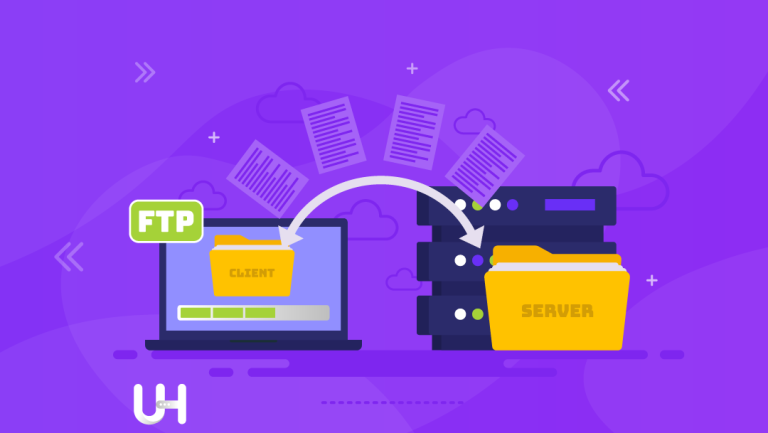The major goal of load testing in the software development life cycle is to ensure that the application works efficiently under various degrees of stress. It enables developers to model high traffic or large loads to identify and fix potential performance bottlenecks before users can feel their effects. With so many load testing tools available, it is rather embarrassing for any developer and organization to choose between them.
In this blog, we will discuss the top nine load-testing tools available in 2025. Each has special features and advantages that will help optimize the performance of your web applications and APIs. These tools include everything from open-source solutions to enterprise-grade platforms.
What Is Load Testing?
Load testing is one form of performance testing that determines the behavior of a system under a certain load-for instance, several concurrent users or transactions. The concept simulates real conditions to see how the application will act under stress and whether it will support peak click-through rates without problems. Load testing helps find performance bottlenecks and points of failure, such as slow response times or server crashes.
Load testing is performed by simulating different loads to ensure that Web applications, APIs, and other systems will scale well and remain stable under a high load. It watches all the important metrics—server response time, throughput, and resource utilization- to see if the system can support a certain level of performance. In general, load testing helps developers tune their systems to improve user experience and avoid expensive downtime to ensure reliable performance in extreme conditions.
Best Load Testing Tools

Among the best load testing tools of 2025, a host of options provide distributed load generation capabilities, real-time reporting, and protocol support for web applications, APIs, and microservices architecture. Free, open-source options like Apache JMeter, Gatling, and k6 are favored for their flexibility and affordability. Meanwhile, enterprise solutions like LoadRunner and BlazeMeter have upped the ante with various advanced features to handle large-scale systems. Let’s look into nine of the best load-testing tools that guarantee the reliability of your application performance in conditions that are constantly in flux and help you choose the best fit for your needs.
Apache JMeter
Apache JMeter is an efficient, open-source load-testing tool among the best website load testing tools for web applications and services. It supports many protocols out of the box and provides mechanisms for simulating several users to see how the system performs under heavy load conditions. JMeter provides impressive, detailed insight into system behavior during high-traffic loads.
- Flexible Protocol Support: JMeter supports many protocols, from HTTP to FTP, JDBC, and beyond.
- Free and Open Source Software: As JMeter is open source, it comes free of cost, and there is an active community that contributes to the plugins, features, and continuous improvements.
- Ease of Use: The result is that JMeter reflects a user-friendly GUI where one can create test plans, manage them, and generate reports while working with results as easily as possible.
Gatling
Gatling is a high-performance, open-source load testing tool designed for developers. It offers a developer-friendly scripting environment in Scala, allowing precise control of test scenarios on fast servers. Gatling can scale tests up to thousands of requests per second and provides detailed performance metrics.
- Developer-Friendly: Gatling uses Scala-based scripts, which allow developers to write specific and scalable test scenarios suitable for a particular performance goal.
- High Performance: It can simulate many users and requests per second, making it scalable even in high-traffic environments.
- Detailed Reports: Gatling provides comprehensive reports in easily readable form while assessing the highest value on system performance, response times, and bottlenecks.
k6
k6 is an open-source load-testing tool for developers and DevOps teams. It supports simple scripting with JS and nicely integrates with CI/CD pipes. k6 provides detailed metrics, helping teams monitor and improve application performance while efficient, real-world traffic conditions are properly simulated.
- JavaScript-Based Scripting: K6 uses JavaScript to develop test scripts. This feature is pretty straightforward for developers who already use this language, which means simplicity for automation.
- CI/CD Integration: It smoothly integrates into the CI/CD pipelines for continuous performance testing during the development cycle, which assures uniform performance monitoring.
- Real-Time Metrics: K6 provides real-time performance insights to quickly find performance issues before affecting end users.
Locust
Locust is open-source Python-based load testing software. It offers flexibility in testing since user behavior can be described by code. Locust is highly scalable and thus supports distributed testing, which can simulate more than millions of concurrent users. It features a modern, clean, web-based UI for monitoring test runs.
- Python-Based Scripting: Locust is based on Python; hence, writing complex test scenarios and custom behaviors is a piece of cake for developers.
- Scalable Testing: This tool supports distributed testing. Simulating millions of users concurrently for a large-scale application test is very helpful.
- Monitoring Web UI: Locust provides a fundamental web-based user interface for monitoring current tests, showing real-time results, and analyzing performance metrics.
Supercharge Your Load Testing with Fast Servers
For high-performance load testing and handling massive traffic, consider Ultahost’s 10 Gbps Dedicated Server. With ultra-fast connectivity and dedicated resources, it’s ideal for testing applications at scale, ensuring seamless performance even under the most demanding conditions.
BlazeMeter
BlazeMeter is a complete load-testing platform for the following testing frameworks: JMeter, Gatling, and Selenium. It supports on-demand and continuous performance testing on elastic environments and provides cloud-based solutions to scale tests. In a production environment, BlazeMeter is ideal for teams in dire need of heavy-duty testing of web applications and APIs.
- Multi-Frameworks: BlazeMeter supports testing systems with JMeter, Gatling, and Selenium. In other words, teams can choose a testing framework they are comfortable using.
- Cloud-Based Testing: Scalable, cloud-based load testing allows one to simulate large amounts of traffic without worrying about infrastructure.
- Continuous Testing: It integrates well with the CI/CD pipelines, making continuous load testing possible for seamless performance monitoring throughout the development cycle.
LoadRunner
LoadRunner is an enterprise-level load-testing tool developed by Micro Focus for simulating virtual users to test application performance under heavy load. It supports various protocols and can handle comprehensive analytics to identify performance bottlenecks. It is one of the favorite choices in big or complex environments for high lead nurturing.
- Extensive Support for Protocols: This refers to the number of protocols that LoadRunner supports, thus making it suitable for testing a wide range of applications and systems.
- Comprehensive Analytics: It has detailed reports and analytics to help teams quickly find and fix performance issues.
- Enterprise Grade Scaling: It is designed for very large-scale enterprise environments. LoadRunner handles extensive load tests simulating millions of virtual users.
WebLOAD
WebLOAD is an enterprise-level performance and load-testing tool for web applications. The provided solution offers both on-premise and cloud-based testing with scalable load generation. WebLOAD provides deep insight into system performance that will help you find defects before they can happen in a production environment. It is perfectly suitable for complex applications and Application Programming Interface testing.
- Cloud and On-premise Testing: WebLOAD supports both cloud-based and on-premises data center load generation, providing flexibility in various test environments and testing needs.
- Advanced Performance Analytics: This conducts an in-depth analysis of a system’s performance, correctly identifying the bottlenecks to improving user experience.
- Scalable Testing: With WebLOAD, users can scale up to simulate thousands of concurrent users for applications and services involving heavy loads.
LoadFocus
LoadFocus is an online load-testing platform for websites and APIs. Built upon JMeter, the solution allows for scalable testing with deep insights into the system’s shared web hosting performance. Multiple tests can run simultaneously, and comprehensive reports efficiently pinpoint and resolve performance issues.
- Cloud-Based Scalability: The loading with LoadFocus scales through cloud infrastructure, thus guaranteeing high traffic without any need for local hardware.
- JMeter Integration: Based on JMeter, LoadFocus inherits its flexibility and extends it with a user-friendly interface and cloud capabilities.
- Detailed Reporting: LoadFocus provides in-depth performance reporting, allowing teams to critically identify bottlenecks and optimize application behavior for heavy loads easily.
Artillery
Artillery is an open-source performance testing toolkit for modern web applications. It supports HTTP, WebSocket, and Socket.io protocol testing with high flexibility and real-time reporting. Artillery can carry out both small—and large-scale performance tests, providing insight into improving the stability and scalability of tested applications.
- Protocol Flexibility: Artillery supports several protocols out of the box: HTTP, WebSocket, and Socket.io producción, making it versatile for testing various types of applications.
- Real-time Reporting: It brings real-time metrics and feedback that help teams quickly identify performance issues and optimize application performance during tests.
- Scalable Testing: Artillery is capable of simulating high traffic and, hence, is very capable of scaling tests, thereby simulating thousands of concurrent users for large applications.
Conclusion
The right choice of load testing tool can make all the difference in the performance of your applications. Each has special features for different needs, from open-source options such as Apache JMeter and k6 to enterprise-grade ones, including LoadRunner and BlazeMeter. Knowing the scalability requirements, protocol support, and integrations you might need with your continuous integration/deployment pipeline will enable selecting the right tool for you.
For fast and reliable WordPress performance under load, consider Quick WordPress Hosting from UltaHost. Optimized speed and scalability make it perfect for handling traffic spikes during load testing.
FAQ
What is load testing?
Load testing mainly simulates many users using an application to understand how that application will react under such stress.
Why do we need load testing?
Load testing helps ensure your application doesn’t go down with high-volume traffic. It also helps diagnose performance bottlenecks.
What is the best load-testing tool?
As usual, the best load testing tool depends on what is needed, from application type and scale to budget. Some of the most popular ones are Apache JMeter, Gatling, K6, and LoadRunner.
Are these tools suitable for API testing?
Many advanced load testing tools, such as Apache JMeter, K6, and Gatling, allow testing APIs. Such tools help you run traffic on the APIs and analyze their performance under load.
Are there any free load-testing tools?
Yes, some load-testing tools are free. Examples include Apache JMeter, K6, and Locust. These open-source tools cost nothing, though you may be required to deploy and maintain them.
How to choose the right tool for load testing?
Scaling, protocols, ease of use, and integration with CI/CD pipelines must be considered with the application’s scale when Choosing a load-testing tool.
How often should load testing be performed?
Regular load testing should be performed, especially after major updates, the release of new features, or any change in infrastructure.












